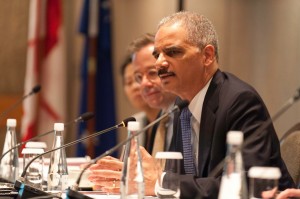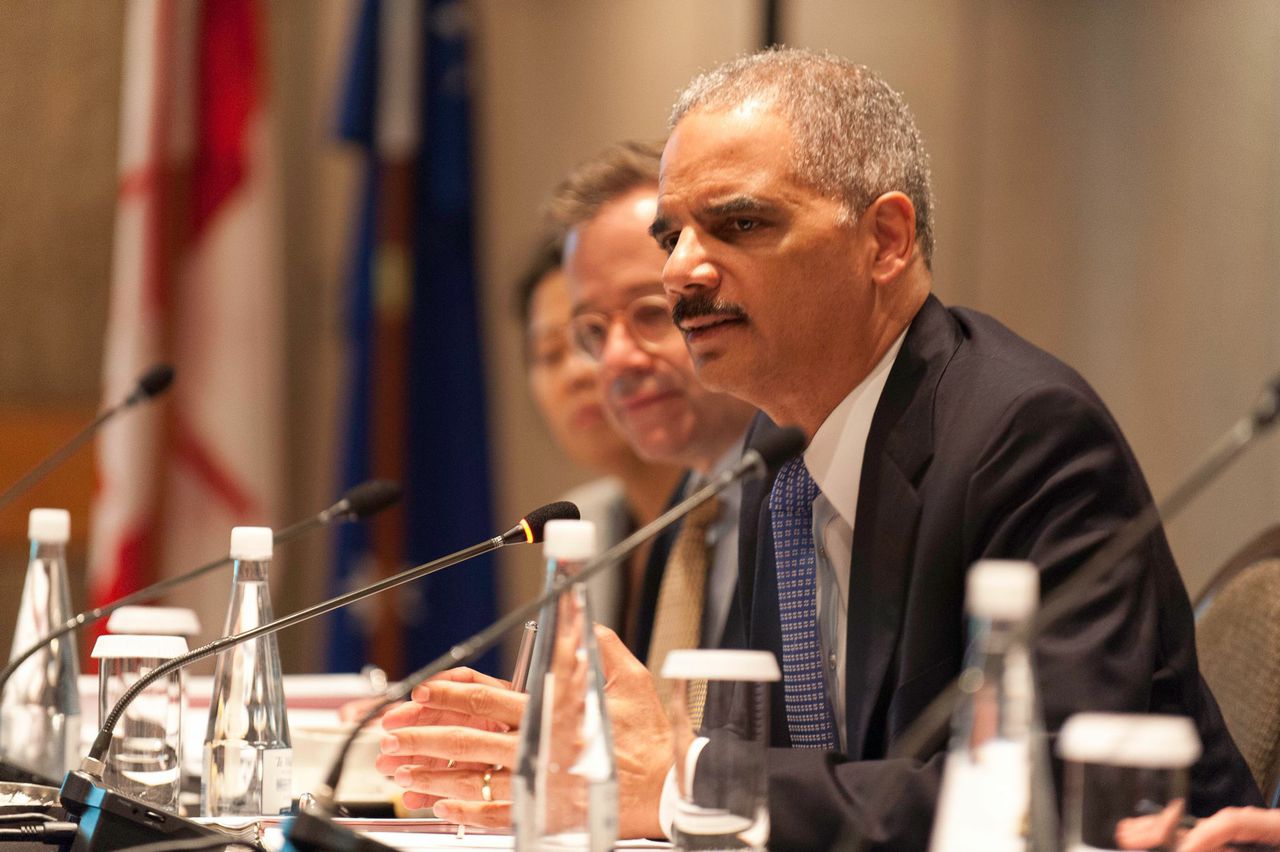Holder’s tenure as Attorney General is over, but racial tension isn’t
As Eric Holder relinquishes his post of Attorney General, and as the later stages of Barack Obama’s presidency increasingly become personified by lame duck fatigue, we must hope that their successors will continue to explicitly address issues of race in America.
Holder’s reforms sought to “avert mandatory minimum sentences for low-level drug offenders” and affect the gross disproportion of incarcerated black citizens.

Some basic statistics illustrate how much more difficult life is for African Americans compared to white Americans. In 2009, African Americans comprised 39.4 per cent of the prison population despite the fact that they only comprise 13.6 per cent of the overall American population. As a result, one in nine African American children have an incarcerated parent.
African American and Hispanic young men are more than six times more likely to be the victims of murder than their white counterparts, which means they account for almost half of the country’s murder victims each year.
Successor administrations will have to display a similar, if not greater, commitment to reducing racial inequalities than the Obama administration, which has done initiatives such as “My Brother’s Keeper” and executive orders on Educational Excellence for African Americans.
Holder’s six years in office have divided opinion: some say he has done enough to remedy such issues, others disagree unequivocally. As is typical in America, these opinions are rigidly correlated with race and ethnicity. His resignation coincides with a period in American history where race appears to be the primary cause of social frictions.
The protests in Ferguson and elsewhere, just like the protests in Hong Kong, have faded away without delivering any tangible sense of justice or recourse that the demands of the demonstrators had pertained to.
The events in St. Louis, Missouri last week — where a young African American man exchanged fire with a police officer and died — remind us that America needs more men and women who are prepared to address the issue of race head-on. The gross inequalities that create the conditions allowing for apparent police impunity can only be remedied through drastic reform and further affirmative action.
This would ensure that, as in Ferguson, populations with a 67 per cent majority of African Americans are not subjected the martial law of a police force which only represents 7 per cent of their ethnic group. A recent study, conducted by the St. Louis Dispatch, studied 31 communities throughout America and found that 30 of them also had a disproportionate amount of white police officers.
Holder’s successor will have to address the institutionalized nature of overt and subtle racism which is present in the selection processes for law enforcement. The BBC recently interviewed a female police officer who claimed how “[i]t may be a combination of being African American and a woman, but there are certain events I am not included in, or even informed of.”
America desperately needs more men and women in the vein of Obama and Holder, who are not afraid to abandon their race neutral lenses, as this is the only way to instigate real, lasting change.
Obama recently stated to The New Yorker that “[m]iddle-class kids don’t get locked up for smoking pot, and poor kids do, and African-American kids and Latino kids are more likely to be poor and less likely to have the resources and the support to avoid unduly harsh penalties.” If America truly is a post-racial society, then this frank address of issues concerning race must continue to be present in high politics.
Then, perhaps throngs of protesters will not take to the street each time a member of their community is killed, for they will trust the law enforcement agencies to have acted correctly.




